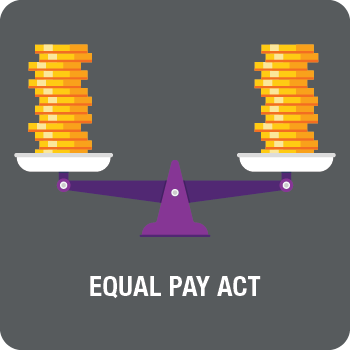Employee Services will be closed on Tuesday, Nov. 4 for an all-staff meeting. During this time, staff will not have access to phones, email or voicemail.
We will respond to your communications after we will reopen at 8 a.m. Wednesday, Nov. 5.
The Colorado Equal Pay for Equal Work Act aims to increase pay equity and transparency, applies new notice and recordkeeping requirements, and encourages companies to regularly examine compensation practices. Starting Jan. 1, 2021, every employer with any employees in the state must comply with the law.
The University of Colorado is dedicated to providing equal pay for substantially similar work in accordance with state and federal law. CU’s compensation philosophy ensures fair and competitive pay with relevant job markets while ensuring good stewardship of public funds. The university adheres to best practices for setting compensation rates and ranges.
The university’s work to implement the law is not expected to result in widespread salary changes; reducing or eliminating jobs; or changes to an employee’s current job code, working title or job duties.
About the law
The Basics
The act protects employees against pay discrimination based on sex (including gender identity) — alone or in combination with other protected statuses — for substantially similar work in terms of skill, effort and responsibility, regardless of job title. It does allow for pay differences accounting for seniority, merit, education, training, experience including relevant external experience, geographic location, travel or quantity/quality of production.
Requirements
The law prohibits:
- Seeking or using wage rate history to determine an employee’s wage rate
- Discrimination and retaliation
The law requires:
- Posting all jobs with the hiring rate or range, along with a description of all benefits and compensation
- Posting all open promotional opportunities (when a vacancy opens in an existing or new position that could be considered a promotion for one or more employees in terms of compensation, benefits, status, duties or access to further advancement)
- Maintaining job description and salary history records
It does NOT require:
- Pay alignment with external market rates
- Pay alignment with other organizations
- Pay alignment across jobs that are not substantially similar based on skill, effort and responsibility
Download this Equal Pay Act recruiting flyer: It will help you share details of the act's requirements with hiring managers, search commitees and your department.
Changes to CU's practices
The law will require some adjustments to ensure compliance. Review the toggles below for needed actions.
Recruiting
When posting positions, it is important to:
- Post all jobs
- Post all open promotions
- Post all temporary jobs
- Include a pay rate or range in all job posts
When extending offers, wage history cannot be used to set pay:
- Do not request pay history
- Do not rely on pay history to set an offer
Posting violations can be reported to the Colorado Department of Labor and Employment within one year of learning of the violation.
CU could face potential fines for noncompliance.
Recruitment resources
Record Keeping
Employers must keep records of job descriptions and wage history for each employee while employed and for two years after termination. CU Human Resources offices are working with schools and departments to ensure compliance.
Current Employees
The university’s work to implement the law is not expected to result in widespread salary changes; reducing or eliminating jobs; or changes to an employee’s current job code, working title or job duties. However, the law will require some adjustments to ensure compliance.
A cross-campus project committee has been working to review salaries for pay equity disparities, develop an approach to remediate inequities, and a method allowing employees to request a pay review or report an issue.
Other efforts include developing methods by campus to track and document each employee’s relevant external experience. More details will be provided as the committee’s work continues.
In addition, existing university and campus policies and procedures are being reviewed to ensure compliance with the law.





